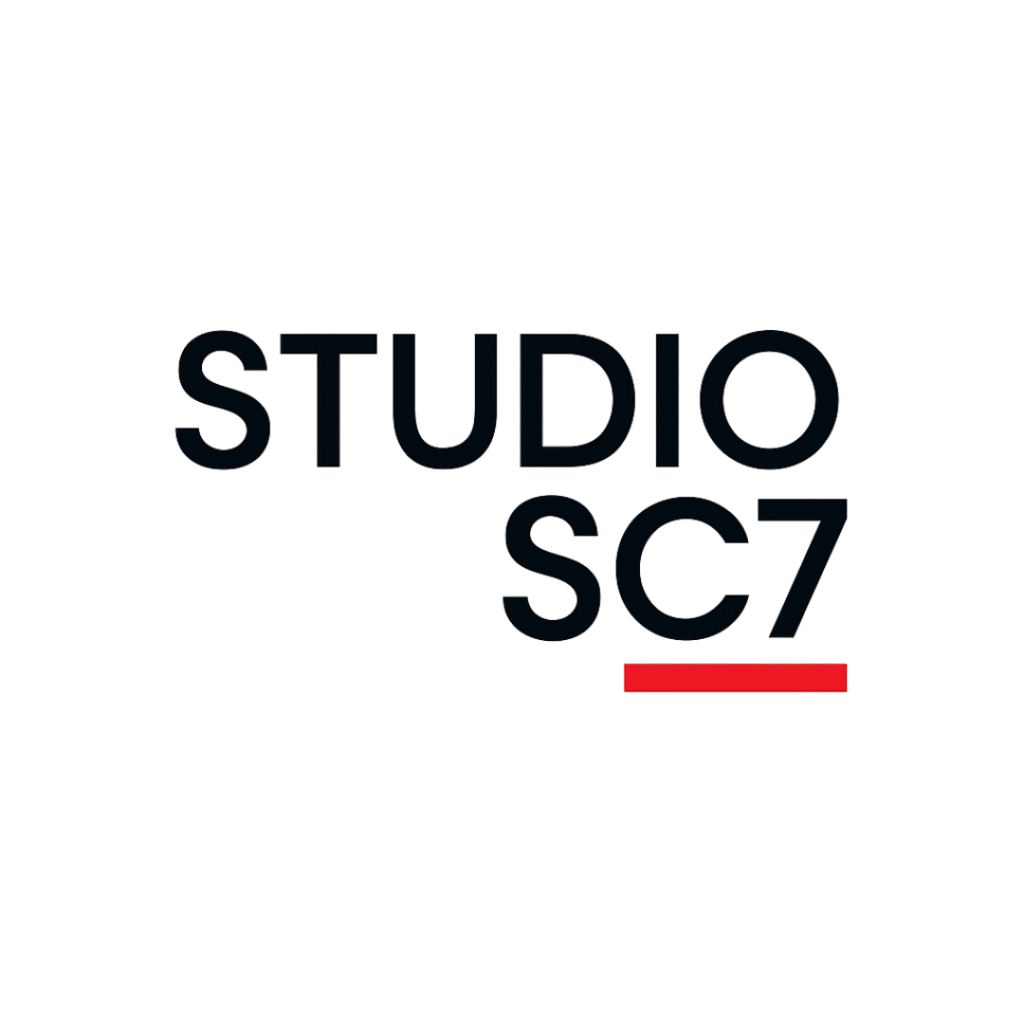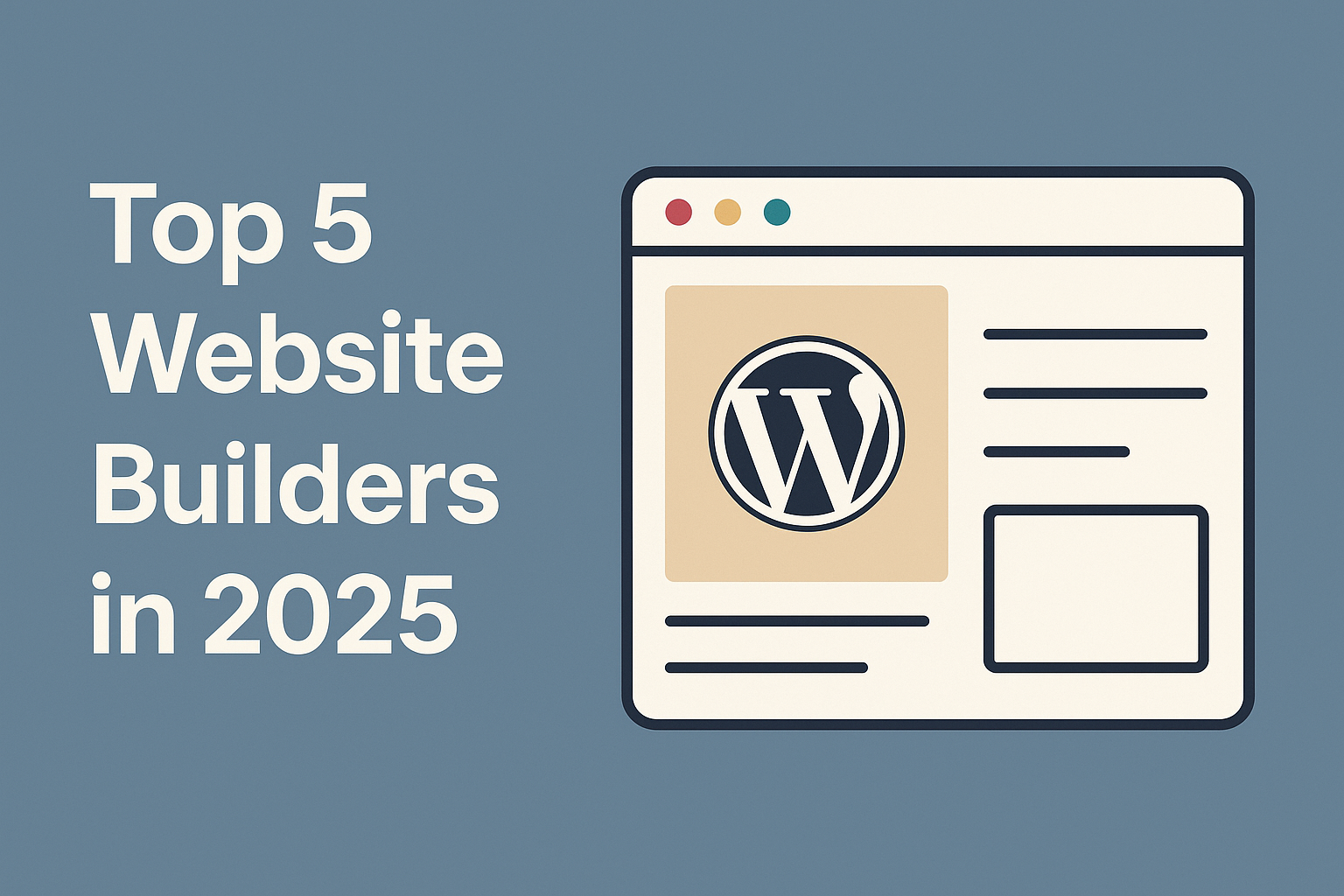Looking for the best website builder in 2025? We compare WordPress, Webflow, Wix, Shopify, and Squarespace—pros, cons, and which one is best for your business.
Top 5 Website Builders in 2025: Why WordPress Still Leads the Pack
In 2025, building a modern, high-performance website doesn’t mean starting from scratch. Whether you’re a startup, agency, or solo entrepreneur, website builders have evolved into powerful platforms that combine flexibility, design, and scalability.
We’ve ranked the top 5 website builders of 2025—and yes, WordPress is still the king (for good reason).
1. WordPress
Best for: Businesses and developers who want full control and long-term scalability.
WordPress powers over 40% of the internet, and that’s not by accident. It offers unmatched flexibility with thousands of themes, plugins, and custom development options. Whether you’re launching a blog, portfolio, ecommerce site, or SaaS platform—WordPress can handle it.
Pros:
- Open-source and fully customizable.
- Huge ecosystem of plugins, themes, and dev tools.
- Excellent for SEO, performance, and long-term ownership.
Cons:
- Requires some technical skill (or a good developer—like us).
- Needs proper hosting, security setup, and maintenance.
Our take:
If you want a site that can evolve with your business—and not lock you into a walled garden—WordPress is still the smartest move.
2. Webflow
Best for: Designers and agencies that want pixel-perfect control without code.
Webflow combines the freedom of custom HTML/CSS with the ease of a visual editor. It’s ideal for building beautiful, interactive websites quickly—especially for design-first teams.
Pros:
- Clean, semantic code output.
- Visual editor that doesn’t dumb things down.
- Fast hosting and built-in CMS.
Cons:
- Learning curve for non-designers.
- Ecommerce and integrations are still catching up to WordPress or Shopify.
Our take:
Fantastic for designers who want creative freedom—but limited if you need deep functionality or plugin support.
3. Shopify
Best for: Ecommerce businesses who want fast setup and reliable performance.
Shopify dominates the ecommerce builder market, and for good reason. It’s user-friendly, fast, and scales well. Ideal for product-based businesses that need to get selling, fast.
Pros:
- Built specifically for selling online.
- App store for custom features and integrations.
- Handles payments, shipping, and taxes out of the box.
Cons:
- Limited design flexibility compared to WordPress or Webflow.
- Monthly costs can add up fast with add-ons and themes.
Our take:
If ecommerce is your bread and butter and you want zero fuss, Shopify’s a solid pick. But for content-heavy or highly custom sites, look elsewhere.
4. Wix
Best for: Beginners and small business owners who want speed and simplicity.
Wix offers a straightforward drag-and-drop interface and dozens of pre-made templates. It’s ideal for small businesses, freelancers, or personal websites that don’t require much customization.
Pros:
- Extremely easy to use—no code or tech knowledge needed.
- Templates and built-in features for most standard use cases.
- Hosting and security are all managed for you.
Cons:
- Limited flexibility and SEO control.
- Not great for scaling or complex sites.
Our take:
Good for quick-and-dirty websites, but you’ll eventually hit a ceiling—and rebuilding on a better platform will cost you.
5. Squarespace
Best for: Creatives, photographers, and solopreneurs who want a polished site.
Squarespace has carved out a niche with its beautiful templates and minimalist design ethos. It’s a favorite among creatives and lifestyle brands.
Pros:
- Stunning design templates.
- Built-in tools for blogging, podcasting, and selling.
- All-in-one platform with hosting and analytics.
Cons:
- Limited customization and development flexibility.
- Less scalable than WordPress or Webflow.
Our take:
Perfect for portfolios, personal brands, or small businesses that care more about aesthetics than scalability.
Final Verdict: What’s the Best Website Builder in 2025?
| Platform | Best For | Avoid If You… |
|---|---|---|
| WordPress | Full control and long-term growth | Want a simple DIY drag-and-drop |
| Webflow | Design-heavy websites | Need plugins or complex backend logic |
| Shopify | Ecommerce-first stores | Have a content-rich or custom site |
| Wix | Speed and simplicity | Want SEO or serious flexibility |
| Squarespace | Beautiful creative sites | Need custom features or integrations |
If you’re serious about building a scalable online presence that you actually own, WordPress is still the most flexible and future-proof choice.
Need a WordPress site built for performance and growth? Let’s talk and build it the right way—from the ground up.






